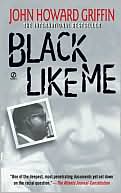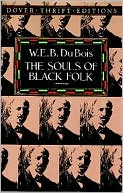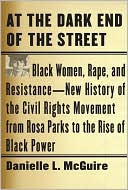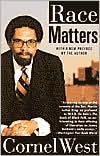Racist America: Roots, Current Realities and Future Reparations
This second edition of Joe Feagin’s Racist America is extensively revised and thoroughly updated, with a special eye toward racism issues cropping up constantly in the Barack Obama era.\ This tenth anniversary edition incorporates many dozens of new research studies on U.S. racial issues that significantly extend and update the first edition's major chapters. It accents exciting new and provocative concepts, especially the white racial frame and systemic racism.\ The author has also added...
Search in google:
This second edition of Joe Feagin’s Racist America is extensively revised and thoroughly updated, with a special eye toward racism issues cropping up constantly in the Barack Obama era. This tenth anniversary edition incorporates many dozens of new research studies on U.S. racial issues that significantly extend and update the first edition's major chapters. It accents exciting new and provocative concepts, especially the white racial frame and systemic racism. The author has also added readable, perceptive discussions of numerous studies in new research areas such as environmental racism, race and health, and antiracist strategies, as well as in all other research areas covered in the first edition. He has thoroughly edited and polished the book to make it much more readable for undergraduates, including eliminating repetitive materials, simplifying endnotes, adding headings and more cross-referencing, and adding a glossary and many new and interesting examples, anecdotes, and narratives about contemporary racism, including at the opening of all chapters.Publishers WeeklyFeagin's voluminous, relentless book testifies to both the strengths and the flaws of applying a sociological approach to the intricate issues of racism in America. Most social scientists, according to this sociologist at the University of Florida (White Racism, etc.) and president of the American Sociological Association, see racism "as something tacked on to an otherwise healthy American society." But Feagin contends that the system embeds racism at the core, from the Constitution to the legacy of slavery and segregation in retarding black economic advancement. He argues aptly that color-blind ideology "provides a veneer of liberality" for those unwilling to recognize how race has shaped America, while those who lump blacks with white immigrant groups ignore the effects of racial discrimination. But Feagin's approach surely sacrifices complexity. Are "racist pressures against interracial marriage" solely the product of white racism? If achievement tests are so biased toward the white middle class, then why do some Asian immigrants do well on them? Feagin calls for a large-scale educational campaign to move whites to confront "the reality of the pain that their system of racism has caused" and a new constitutional convention to incorporate "the group interests and rights of all Americans of color." He also calls for individual and group reparations for blacks. (But how exactly would a "black community" be determined?) Feagin doesn't engage those who argue that class-based remedies may be better than race-based ones--another flaw in a book full of strong yet poorly articulated arguments. (Aug.) Copyright 2000 Cahners Business Information.\|
1. Systematic Racism 2. Slavery Unwilling to Die 3. The White Racial Frame 4. Contemporary Racial Framing 5. Racial Oppression Today 6. White Privileges and Black Burdens 7. Systematic Racism 8. Antiracist Strategies and Solutions
\ Publishers Weekly - Publisher's Weekly\ Feagin's voluminous, relentless book testifies to both the strengths and the flaws of applying a sociological approach to the intricate issues of racism in America. Most social scientists, according to this sociologist at the University of Florida (White Racism, etc.) and president of the American Sociological Association, see racism "as something tacked on to an otherwise healthy American society." But Feagin contends that the system embeds racism at the core, from the Constitution to the legacy of slavery and segregation in retarding black economic advancement. He argues aptly that color-blind ideology "provides a veneer of liberality" for those unwilling to recognize how race has shaped America, while those who lump blacks with white immigrant groups ignore the effects of racial discrimination. But Feagin's approach surely sacrifices complexity. Are "racist pressures against interracial marriage" solely the product of white racism? If achievement tests are so biased toward the white middle class, then why do some Asian immigrants do well on them? Feagin calls for a large-scale educational campaign to move whites to confront "the reality of the pain that their system of racism has caused" and a new constitutional convention to incorporate "the group interests and rights of all Americans of color." He also calls for individual and group reparations for blacks. (But how exactly would a "black community" be determined?) Feagin doesn't engage those who argue that class-based remedies may be better than race-based ones--another flaw in a book full of strong yet poorly articulated arguments. (Aug.) Copyright 2000 Cahners Business Information.\|\ \ \ \ \ Racism is a fact of life in American society: it's practiced by all Americans of all colors. This explores its presence and how it's enacted, considering the economic, ideological and political structure of American racism. The analysis offers many thoughtful points about how racism has permeated the system.\ \ \ Kirkus ReviewsA sometimes searing indictment of American racial practices. Sociologist Feagin (White Racism, not reviewed) traces the development of American racism to its roots in Europe. Ideologically, race was not a major consideration in human endeavors until the beginning of the European slave trade in the 1400s, Feagin tells us. But some 300 years later, it had grown full-blown and become a major cornerstone of intellectual thought—dominated by such thinkers as Locke, Kant, and Hegel, and by the Frenchman Joseph Arthur de Gobineau. All of these harbored anti-black views to varying degrees, including the curious natural-law notion that blacks somehow were born to be slaves. Much of this 18th-century twaddle was absorbed by our Founding Fathers, especially by Thomas Jefferson, Benjamin Franklin, and James Madison. Feagin also examines Reconstruction, the lynchings of the late-19th and early-20th centuries, the Civil Rights era, and the post-Civil Rights period. As we enter a point in the new millennium where the white population is beginning to shrink, Feagin points out that less than half the population of America's four largest cities (New York, Los Angeles, Houston, and Chicago) is white. This and other factors lead Feagin to call for an international view of civil rights (i.e., one in which all are entitled to equal concern because all are human beings and not members of this or that state or tribe). Feagin, who is avowedly influenced by Franz Fanon and Kwame Ture (Stokely Carmichael), is at his overwrought best when he is in historical pursuit of the roots of racism. Perhaps because it is something not readily fresh on the mind, it is a matter of more than idle curiosity whatBenjaminFranklin and James Madison thought about "whiteness." On the other hand, matters such as affirmative action and reparations are too widely discussed and familiar to make Feagin's discussion of them very interesting or fresh. A useful study, even for those who are not guilt-ridden.\ \








